Stormont deadlock: DUP leader not aware of NI talks proposal
- Published
- comments
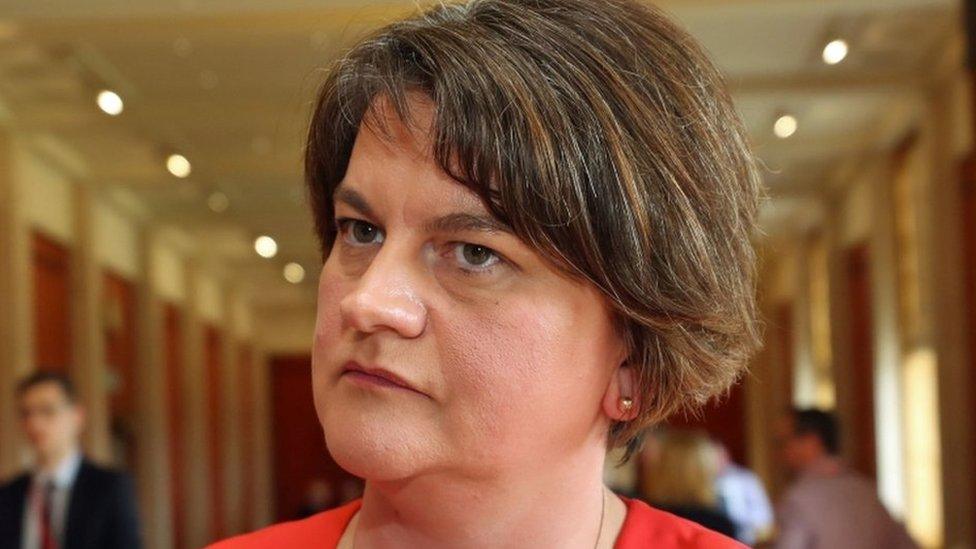
Arlene Foster said a stand-alone Irish language act was not negotiable
DUP leader Arlene Foster has said she is not aware of a formal proposal for talks with the Northern Ireland parties in the autumn.
It follows comments from the Irish prime minister (taoiseach) that the British and Irish governments hope to hold talks aimed at restoring devolution.
"These are just comments made by the Irish government," said Mrs Foster.
The Stormont power-sharing executive collapsed 18 months ago.
Ministers from the governments met in London last week for a session of their intergovernmental conference.
"We would intend in the autumn some time trying again to get the parties in Northern Ireland together," said Mr Varadkar on Tuesday.
"I think the absence of any clarity around Brexit makes that very difficult but if we can have that in October I think there is an opportunity certainly before the end of the year to get the assembly and executive up and running," he added.
Last week, the Northern Ireland Secretary Karen Bradley said the government would "take the steps it needs to take" to ensure good governance in Northern Ireland.
On Tuesday, a UK government spokesperson said: "The secretary of state and UK government's top priority remains the restoration of devolved government in Northern Ireland."
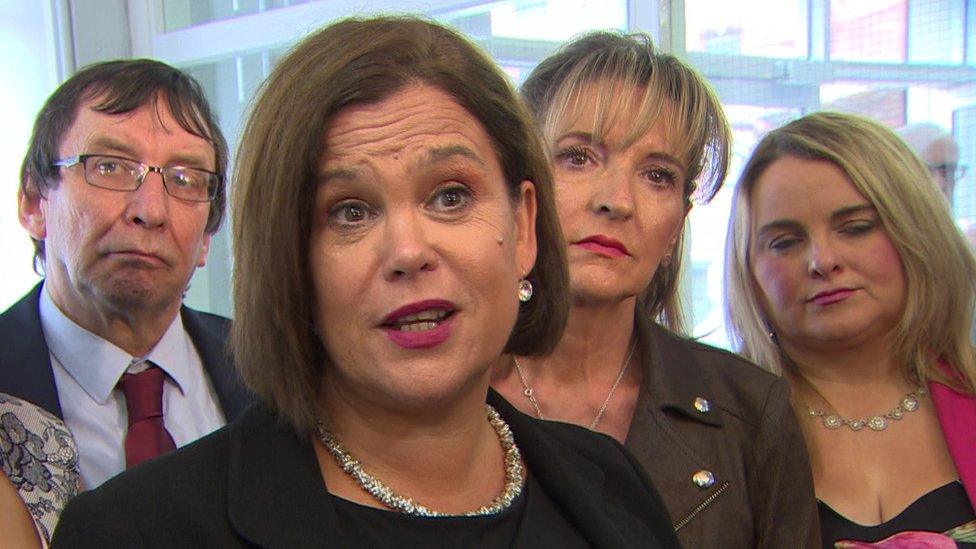
Mary Lou McDonald condemned Arlene Foster's comments
Mrs Foster told the BBC on Wednesday that a number of decisions had to be taken by Mrs Bradley.
She also said that a stand-alone Irish language act, a key demand by Sinn Féin, was not negotiable.
She dismissed claims by the Sinn Féin president Mary Lou McDonald that the DUP had "crashed out" of the last round of political talks and had "gone into hiding at Westminster" as "nonsense".
Speaking in Londonderry on Wednesday evening, Ms McDonald condemned Mrs Foster's comments.
"I think it is hugely disappointing that Arlene Foster and the DUP do not seem to have moved on since last February.
"The rhetoric of no, nay, never, gets nobody anywhere.
"We need a partner in unionism and the truth is the DUP and Arlene Foster are not prepared to lead."
Busy October
BBC Northern Ireland's political editor Mark Devenport said it appeared "there was a mountain to climb" for the DUP and Sinn Féin.
"The hope of the governments would be that time will heal some of these ills, but October looks like it could be potentially quite divisive," he added.
October is already a busy month politically, with a number of events planned.
They include a meeting of the British-Irish Intergovernmental Conference, DUP leader Arlene Foster giving evidence to the RHI Inquiry, a Brexit summit in Brussels and the Irish presidential election.
Also on the agenda in the autumn is the Conservative Party conference, the Ulster Unionist Party conference and a possible by-election in North Antrim.

Why is Northern Ireland without a government?
Northern Ireland has been without a government since January 2017, when the governing parties - the DUP and Sinn Féin - split in a bitter row.
Martin McGuinness, the then deputy first minister, resigned in protest of the handling of the botched Renewable Heat Incentive (RHI) scheme.
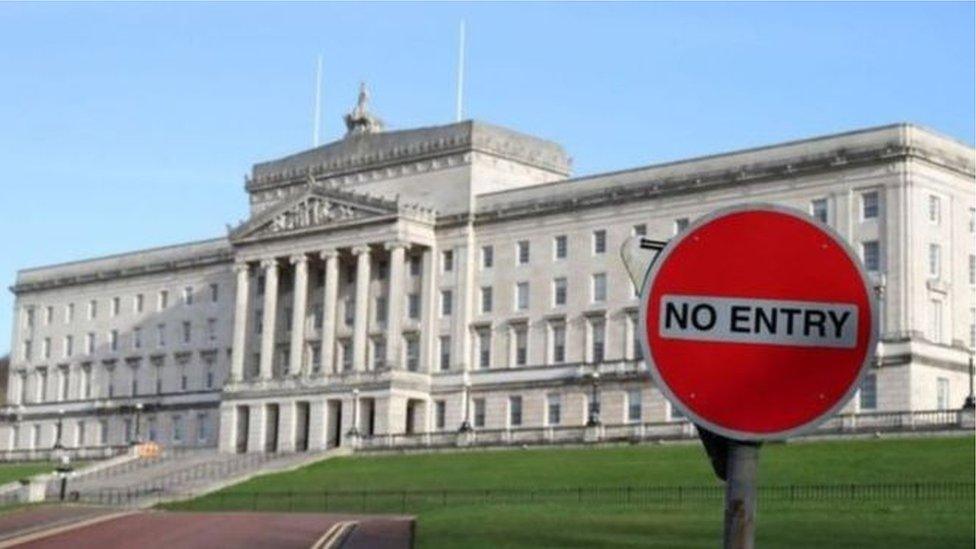
The Stormont institutions collapsed in January 2017
Since then, the two parties have remained far apart over crucial issues such as Sinn Féin's desire for legislation to give official status to the Irish language in Northern Ireland, rights for same-sex couples to marry and Troubles legacy issues.
Several rounds of talks to restore government at Stormont have, so far, failed while the UK government has resisted calls to institute direct rule from Westminster.
- Published31 July 2018

- Published7 August 2019
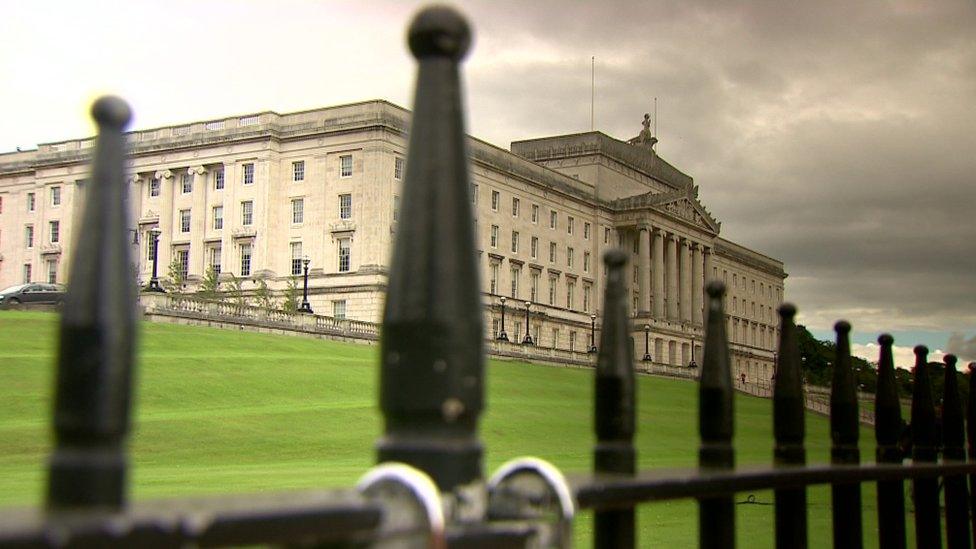
- Published14 February 2018
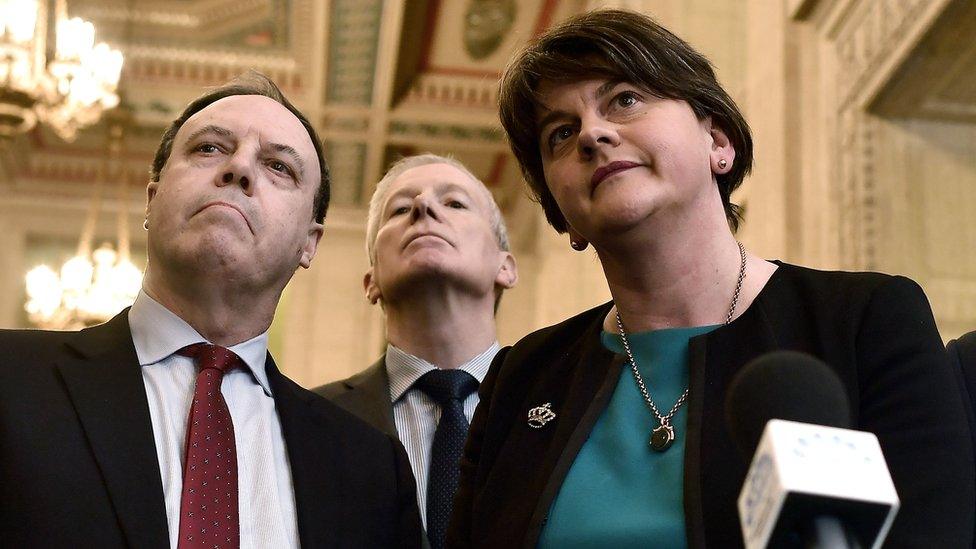
- Published9 January 2018
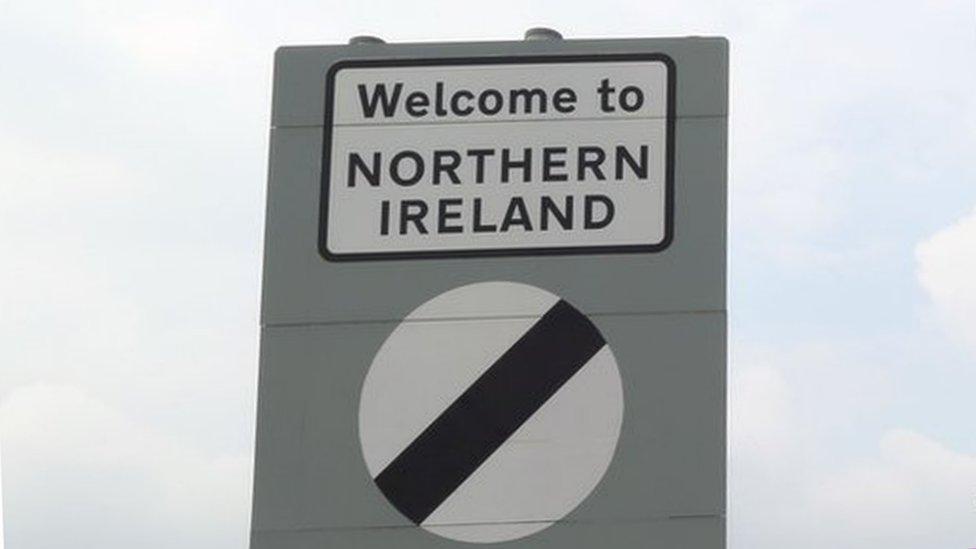
- Published25 July 2018
